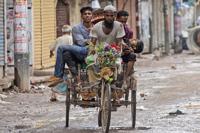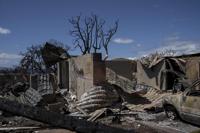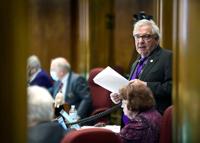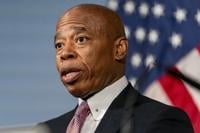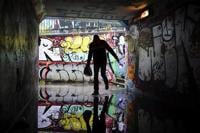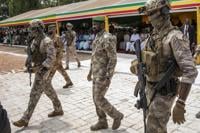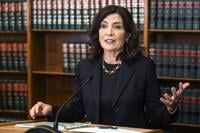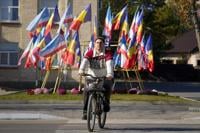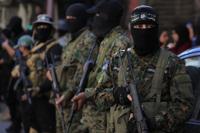GENEVA (AP) — The U.N. human rights office on Wednesday estimated that up to 1,400 people may have been killed in Bangladesh over three weeks last summer in a crackdown on student-led protests against the now-ousted former prime minister.
In a new report, the Geneva-based office says security and intelligence services “systematically engaged” in rights violations that could amount to crimes against humanity and require further investigation.
Citing “various credible sources,” the rights office said it estimated that as many as 1,400 people may have been killed in the protests between July 15 and Aug. 5 — the day longtime fled to India amid the uprising.
Thousands more were injured in the weeks leading up to and after the protests, and the vast majority of those killed and injured “were shot by Bangladesh’s security forces,” the report said.
Over 11,700 people were detained, the report said, citing information from security services. It said that about 12 to 13% of people estimated to have be killed —- or as many as about 180 people — were children.
In some cases, “security forces engaged in summary executions by deliberately shooting unarmed protesters at point blank range,” it said.
U.N. human rights chief Volker Türk cited signs that “extrajudicial killings, extensive arbitrary arrests and detentions, and torture” were conducted with the knowledge and coordination of the political leadership and top security officials as a way to suppress the protests.
The U.N. fact-finding team was deployed to Bangladesh at the invitation of the country's , the Nobel Peace laureate , to look into the uprising and violent crackdown.
The team of investigators said the interim government has reportedly made 100 arrests in connection with attacks . The report said “many perpetrators of acts of revenge, violence and attacks on distinct groups apparently continue to enjoy impunity.”
The human rights situation in Bangladesh continues to raise concerns, the U.N. office said.
While the government has changed, “the system has not necessarily changed," Rory Mungoven, head of the rights office's Asia-Pacific region, told reporters. "Many officials and people who had served or been appointed under the previous regime continue to function,” he said.
Such a situation creates “a potential conflict of interest” and could impede reforms and accountability, Mungoven added.
The investigators issued dozens of recommendations to the government, such as steps to improve the justice system and setting up a witness protection program. It also recommended banning the use of lethal firearms by security forces to disperse crowds unless they are faced with “imminent threat of death or serious injury.”
In a statement after the report was published, Yunus reiterated his government's commitment to upholding the rule of law and said it was crucial to reform the country's law enforcement and justice sectors.
“I call on everyone working inside these institutions to side with justice, the law, and the people of Bangladesh in holding to account their own peers and others who have broken the law and violated the human and civil rights of their fellow citizens,” he said.
What began as peaceful demonstrations by students frustrated with a quota system for government jobs unexpectedly grew into a against Hasina and her ruling Awami League party.
A High Court decision in early June that reinstated the quota system was the “immediate trigger” to the protests, which were also fueled by long standing grievances about economic inequality and a lack of rights, the report said.
—�Ĕ
AP writer Julhas Alam in Dhaka contributed to the report.


